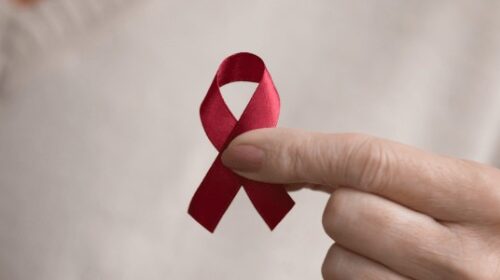The connection between mental health and addiction is super important to be aware of. And struggling with both at the same time is not as rare as you might think.
According to SAMHSA, more than one in four adults with severe mental health problems also struggle with substance use. And it makes sense. Stress, worry, or feeling down can lead us to seek comfort. And many turn to things like drugs and alcohol to relieve that pain.
Understanding the link is crucial because it affects so many people. You probably know someone who has struggled with one or the other or both. Awareness can help us know how to support people going through a hard time or recognize if we need to find help for ourselves.
Let’s explore the connection, discuss the stigma roadblock, and work together to create an environment of support and understanding for everyone.
The Link Between Mental Health and Addiction
Before we discuss the connection between mental health and addiction, let’s talk about what they are on their own.
What is mental health?
Mental health consists of a person’s psychological, emotional, and social well-being. And optimal mental health is crucial for our overall well-being. It can influence how we think, feel, and behave. And it can shape how we manage stress and maintain healthy relationships. Our mental health also plays a part in our decision-making abilities.
There’s a wide range of mental health conditions, from more common ones like depression and anxiety to severe conditions like bipolar disorder or schizophrenia. These mental health conditions do not discriminate. Anyone, regardless of age, gender, or socioeconomic background, can struggle with mental health.
What is addiction?
Addiction is a complex disease influenced by our psychological, environmental, and emotional factors. Struggling with it does not mean you are a failure or weak.
Professionals characterize addiction as the compulsive and harmful use of substances or certain behaviors despite adverse consequences.
Substance use disorder (SUD) is the most common form of addiction. However, addictive behaviors can also manifest in other ways: food, gambling, sex, or video games.
How are they connected?
Many people struggle with mental health and addiction together. Experts refer to this as co-occurring disorders, comorbidity, or dual-diagnosis. Having both together requires a comprehensive personalized treatment approach to address both issues.
Stress, anxiety, and depression can lead a person to seek comfort in addictive substances or habits. For example, someone with anxiety may turn to alcohol to cope and ease their anxious thoughts when alcohol actually increases their anxiety.
Because of the way addiction messes with the brain, it can cause your mental health problems to worsen over time. Addiction can also trigger new mental health struggles, and people can get stuck in a cycle that’s hard to break. Accepting what you’re dealing with has spiraled out of your control is essential. And it’s OK to ask for help.
Getting necessary support and utilizing resources will help you regain control over your life, rebuild your relationships, and reintegrate into your community.
The Science of Mental Health and Addiction
Mental health and addiction are complex and multifaceted issues influenced by various factors. Understanding and addressing the possible underlying causes can lead to early intervention and break the cycle for future generations.
Genetic predisposition
People with a family history of mental health disorders or addiction are more likely to develop these conditions at some time throughout their lives. Although genetics alone does not guarantee you will deal with either, there is a risk.
Trauma
Adverse Childhood Experiences (ACEs) or traumatic events during childhood, such as witnessing violence, neglect, or being the victim of emotional or physical abuse, can leave a lasting impact and increase the risk of developing mental health disorders and using substances to cope.
Environmental factors
Where and how you grew up can greatly impact your life, including your mental health. Things like unstable housing, exposure to substance abuse or domestic violence at a young age, and poverty can increase your risk.
Brain chemistry
Conditions like depression, anxiety, and schizophrenia are associated with specific changes in our brain’s structure and chemical composition. Abusing substances can create more disruption in our brains and lead to dependency.
Social factors
Isolation, lack of support systems, and peer pressure can all contribute to developing mental health disorders and addiction. People who face social challenges or have strained personal relationships may be more prone to turning to substance use as a way to cope or engage in other addictive behaviors as a way to feel accepted by peers.
Signs and Symptoms
While each person experiences mental health and addiction differently, there are some common signs to look for. Understanding the symptoms can help those struggling, and those in their lives support them and encourage them to seek help.
Remember, the signs and symptoms can vary widely and may not necessarily indicate the person has a mental health disorder or addiction. However, the impairments can significantly affect a person’s daily life and greatly impact their overall well-being.
Physical
Some physical changes that may indicate mental health or addiction struggles are unexplained fluctuations in weight, sleep and appetite issues, stomach and head pain, and other unexplained aches and pains.
A decline in personal hygiene, neglecting self-care routines, or losing interest in their appearance can also indicate a mental health or addiction issue.
Cognitive and behavior
Using substances and having mental health conditions can impair your thinking. People may have trouble with focusing, decision-making, or remembering things. They also may have disorganized thoughts or have trouble expressing themselves.
A significant change in behavior or acting “not like themselves” is a noticeable sign of someone who is struggling. People may exhibit erratic or impulsive behaviors and experience mood swings, irritability, or withdrawal from normal activities and relationships. Engaging in risk-taking behavior is also a sign to look for.
Emotional
Both addiction and mental health struggles can impact a person’s ability to manage their emotions. And trouble dealing with emotions is often a reason people turn to substances in the first place. Some common emotional signs include anxiety, anger, or intense sadness. Feelings of worthlessness or thoughts of self-harm or suicidality are also important signs to look for.
If you or someone you know has thoughts of hurting themselves, dial 988 for the Suicide and Crisis Lifeline. There is always someone to talk to. You are not alone.
Breaking the Cycle and the Stigma
Stigma and discrimination can worsen our mental health and exacerbate addiction issues. People’s negative beliefs and judgments about those who are struggling can significantly impact those who need support the most.
Because of stigma, people may feel ashamed or scared to seek help, leading to a delay in receiving necessary support and worsening symptoms. Imagine if you had a problem but were afraid to talk about it or ask for help—that’d make things much harder, right?
Stigma can also isolate people from their support systems. It’s like building a wall between them and those who care most about them. As a society, we must address and challenge the stigma to create an environment where individuals feel safe and supported in seeking the help they need.
So how do we fix it?
We must remove the walls and open the door for people to recover and heal. It’s not a one-person job. Together, we can work to break the cycle of stigma and ensure everyone knows it’s okay to ask for help.
Road to Recovery: Treating Both Sides
It’s crucial to seek help for your mental health and addiction struggles at the same time. Dealing with the two intertwined is complex, and they can feed off each other. Ending the mental health and addiction loop is tough, but it’s the best way to face your struggles and start feeling better. And you don’t have to do it alone.
Get professional help
It’s critical to recognize the relationship between mental health and addiction and to address your co-occurring disorders with the help of a trained professional. Entering treatment can provide the proper support for your recovery. However, not all programs are created equal.
Providers should use evidence-based supports like cognitive-behavioral therapy (CBT), medication-assisted treatment, peer support groups, and aftercare programs.
Get Help at Recovery Unplugged
We know firsthand the importance of dealing with your substance use and mental health struggles. Don’t let them continue to control your life. Try treatment today and start your path to recovery with the professionals at one of our in-person locations or online.
Our programming offers help for a variety of dual-diagnosis mental health issues, including:
- Depression
- Anxiety
- Bipolar Disorder
- PTSD
- Conduct Disorders
- Attention Deficit Hyperactivity Disorder
Recovery is not a linear path or a destination. For many, it’s a life-long battle that requires daily and intentional work. Remember, you’re not alone. With the proper support, you can improve your mental health, achieve sobriety, and live a fulfilling life in recovery.
If you or someone you know is struggling, help is not far away. Call Recovery Unplugged today at 1 (855) 975-1757. Our experienced professionals are available 24/7, every day of the year.

























